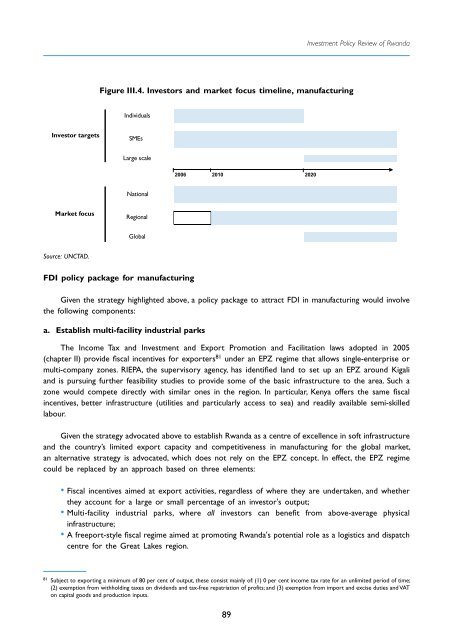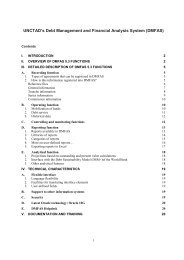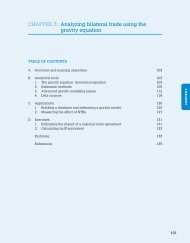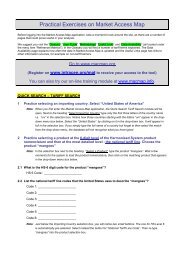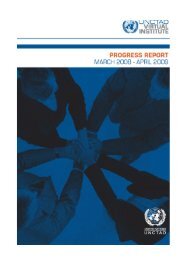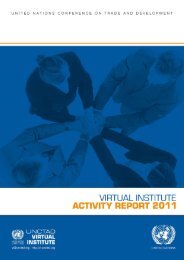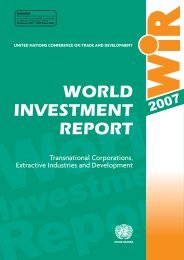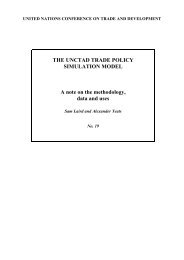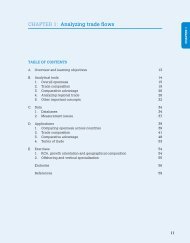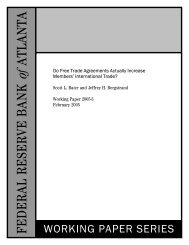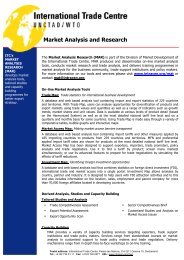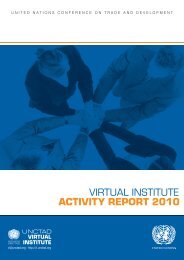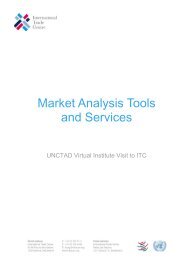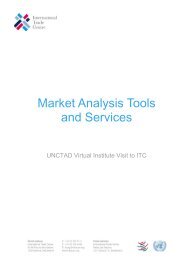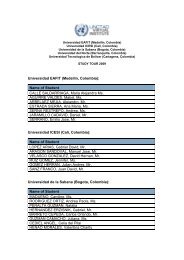Investment Policy Review - Rwanda - UNCTAD Virtual Institute
Investment Policy Review - Rwanda - UNCTAD Virtual Institute
Investment Policy Review - Rwanda - UNCTAD Virtual Institute
You also want an ePaper? Increase the reach of your titles
YUMPU automatically turns print PDFs into web optimized ePapers that Google loves.
<strong>Investment</strong> <strong>Policy</strong> <strong>Review</strong> of <strong>Rwanda</strong><br />
Figure III.4. Investors and market focus timeline, manufacturing<br />
Individuals<br />
Investor targets<br />
SMEs<br />
Large scale<br />
2006<br />
2010<br />
2020<br />
National<br />
Market focus<br />
Regional<br />
Global<br />
Source: <strong>UNCTAD</strong>.<br />
FDI policy package for manufacturing<br />
Given the strategy highlighted above, a policy package to attract FDI in manufacturing would involve<br />
the following components:<br />
a. Establish multi-facility industrial parks<br />
The Income Tax and <strong>Investment</strong> and Export Promotion and Facilitation laws adopted in 2005<br />
(chapter II) provide fiscal incentives for exporters 81 under an EPZ regime that allows single-enterprise or<br />
multi-company zones. RIEPA, the supervisory agency, has identified land to set up an EPZ around Kigali<br />
and is pursuing further feasibility studies to provide some of the basic infrastructure to the area. Such a<br />
zone would compete directly with similar ones in the region. In particular, Kenya offers the same fiscal<br />
incentives, better infrastructure (utilities and particularly access to sea) and readily available semi-skilled<br />
labour.<br />
Given the strategy advocated above to establish <strong>Rwanda</strong> as a centre of excellence in soft infrastructure<br />
and the country’s limited export capacity and competitiveness in manufacturing for the global market,<br />
an alternative strategy is advocated, which does not rely on the EPZ concept. In effect, the EPZ regime<br />
could be replaced by an approach based on three elements:<br />
• Fiscal incentives aimed at export activities, regardless of where they are undertaken, and whether<br />
they account for a large or small percentage of an investor's output;<br />
• Multi-facility industrial parks, where all investors can benefit from above-average physical<br />
infrastructure;<br />
• A freeport-style fiscal regime aimed at promoting <strong>Rwanda</strong>'s potential role as a logistics and dispatch<br />
centre for the Great Lakes region.<br />
81<br />
Subject to exporting a minimum of 80 per cent of output, these consist mainly of: (1) 0 per cent income tax rate for an unlimited period of time;<br />
(2) exemption from withholding taxes on dividends and tax-free repatriation of profits; and (3) exemption from import and excise duties and VAT<br />
on capital goods and production inputs.<br />
89


